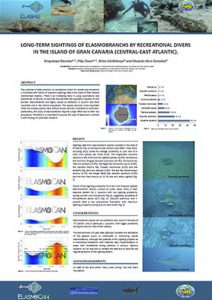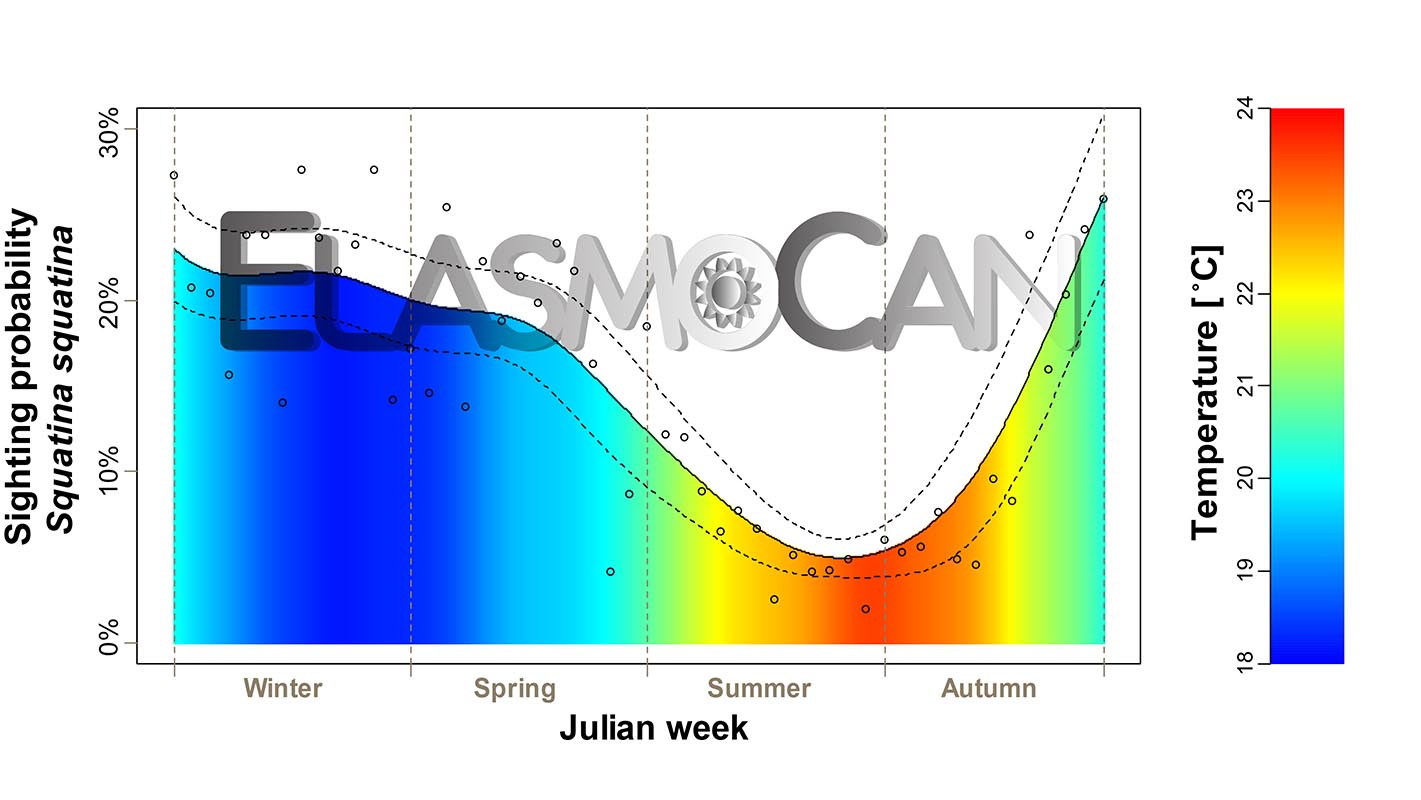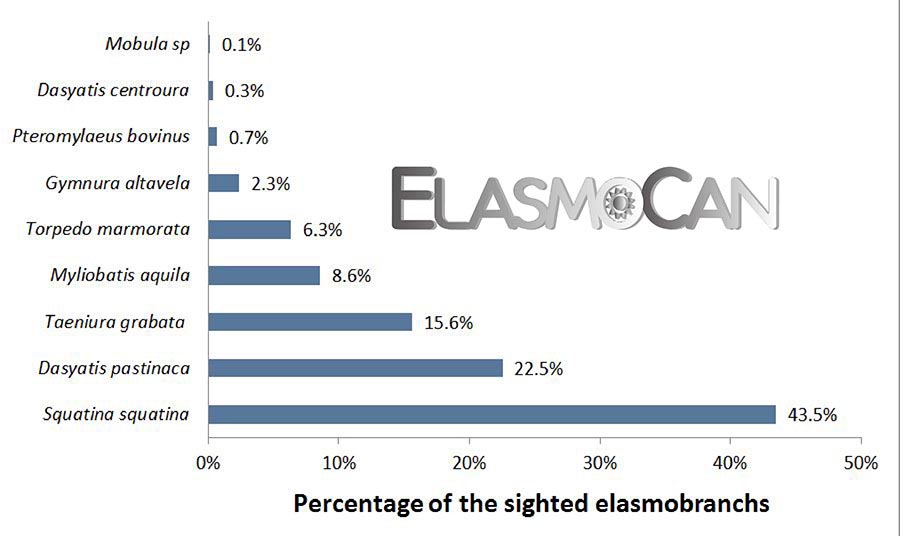Citizen science - Recreational divers
Sightment by recreational divers
Citizen science: Sightment by recreational divers
 The dive centre Davy Jones Diving collected a 6-year series of sightings data os sharks and rays in the area of El Cabrón (Gran Canaria, Canary Islands). The results of these give an image of the presence and seasonality of 9 elasmobranch species in this area. Read the poster presented during the conference IV Congreso de Ciencias del Mar.
The dive centre Davy Jones Diving collected a 6-year series of sightings data os sharks and rays in the area of El Cabrón (Gran Canaria, Canary Islands). The results of these give an image of the presence and seasonality of 9 elasmobranch species in this area. Read the poster presented during the conference IV Congreso de Ciencias del Mar.
Strong seasonality of the angel shark
The observations of the common angelshark (Squatina squatina) showed a strong seasonality over the 6-years. The minimum average probability to observe the species occurs when the water temperature is higher or is above 22˚C, even deceasing to only one observation in 50 dives (2%). In contrast, colder and temperate water temperatures, between 18˚ to 21˚C, resulted in a higher average probability to encounter an individual, with up to one observation in 3.6 dives (27.5%).
The angelshark is the most frequent observed species
At least one of the in total 9 reported elasmobranch species can be observed year round in the area of “El Cabrón”. The common angelshark or monkfish Squatina squatina was the only shark species and the most frequent observed of all in 43.5% of the sightings. The common stingray Dasyatis pastinaca was the second most observed species with 22.5% of the observations, followed by the fantail stingray Taeniurops grabatus, 15.6%, the eagle ray Myliobatis Aquila, 8.6%, the marbled electric ray Torpedo marmorata, 6.3%, the spiny butterfly ray Gymnura altavela, 2.3%, the bull ray Aetomylaeus bovinus, 0.7%, the rough tailed ray Bathytoshia centroura, 0.3%, and the devil ray Mobula sp., 0.1%, which was very rarely observed.
More information about citizen science
Read more information about earlier citizen science studies with recreational divers in the Canary Islands and how dive centers can contribute to research in the section Research lines.


